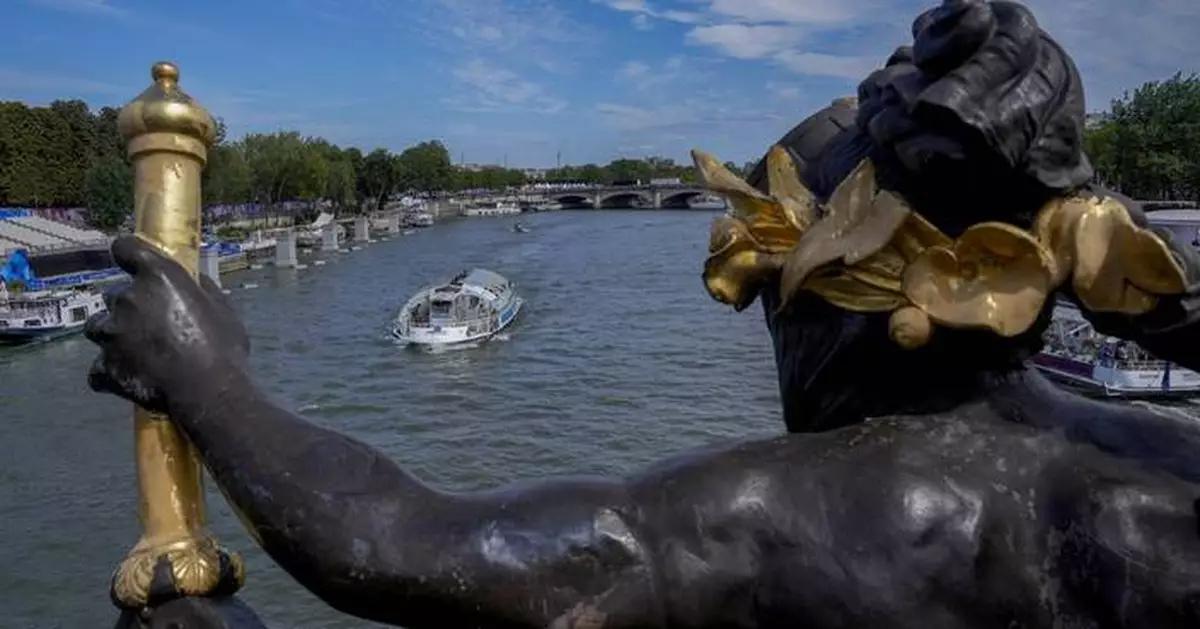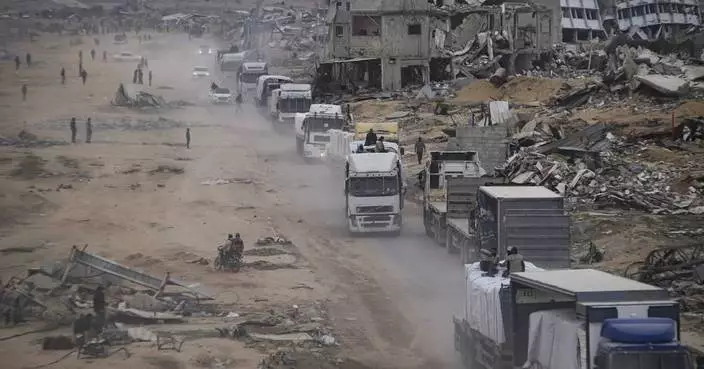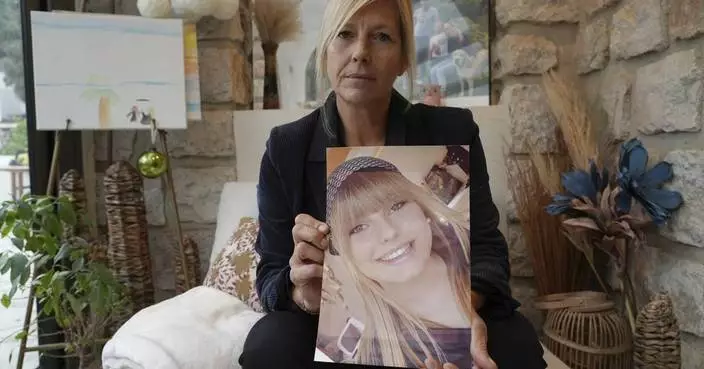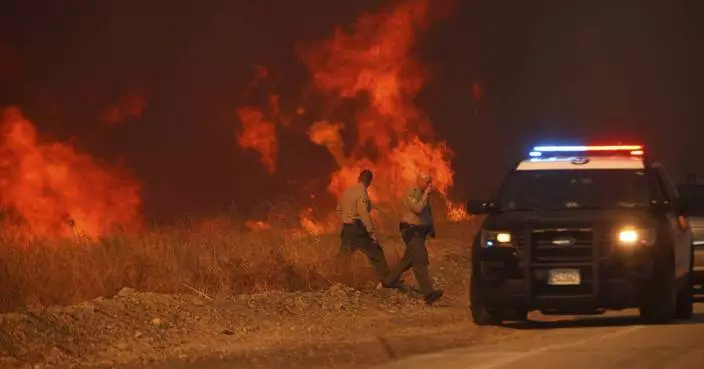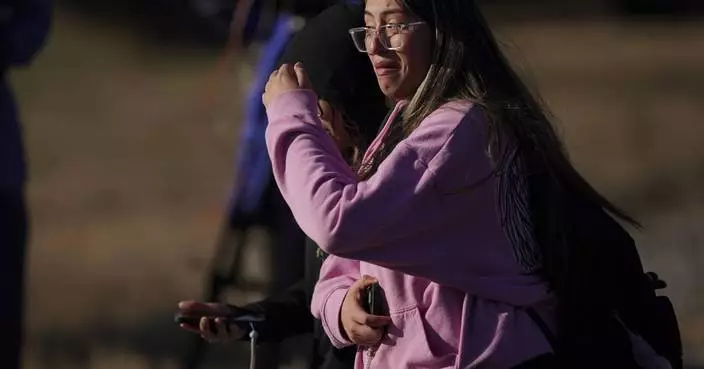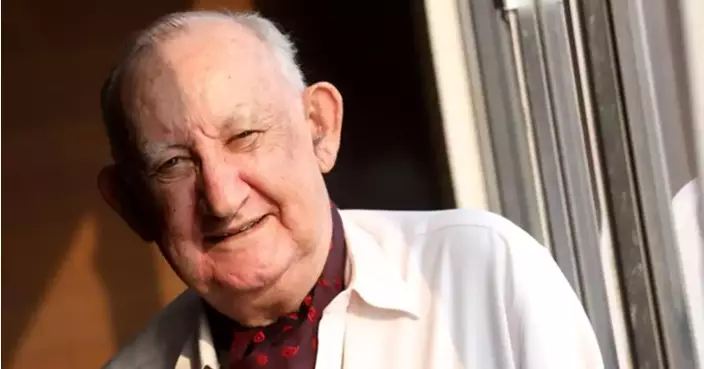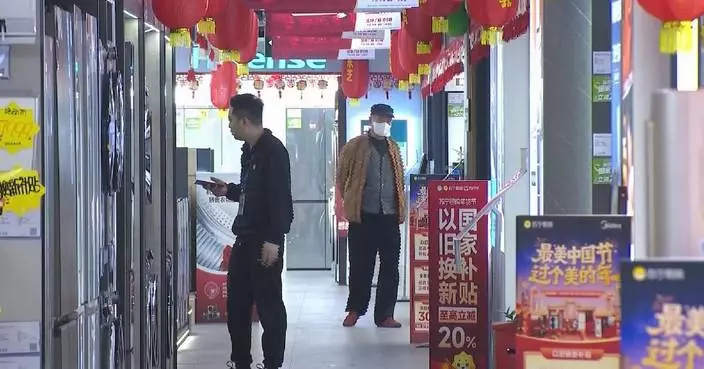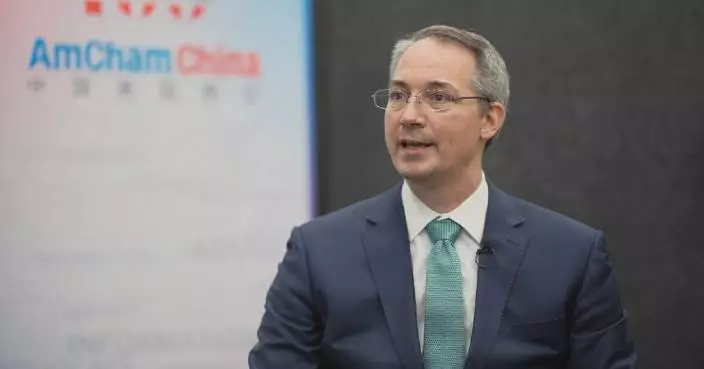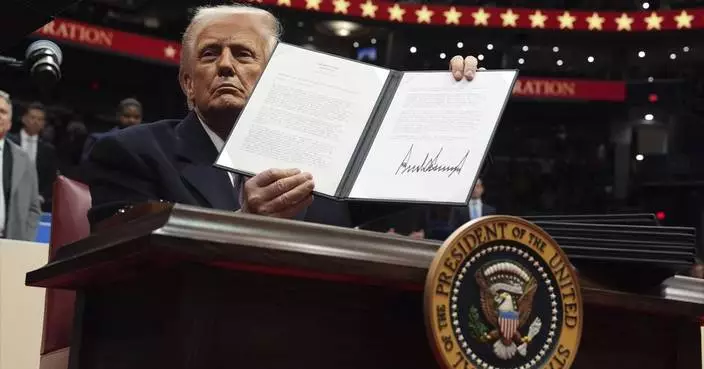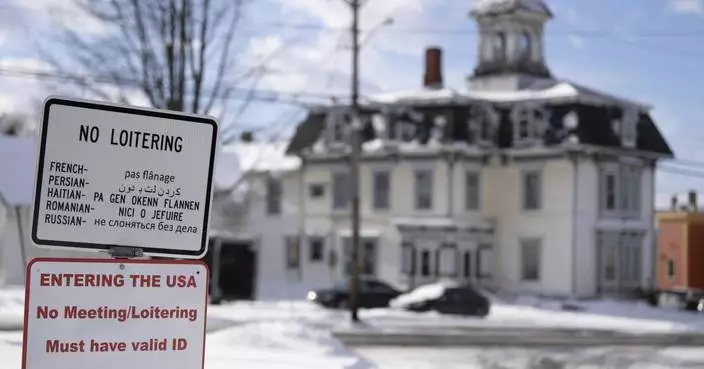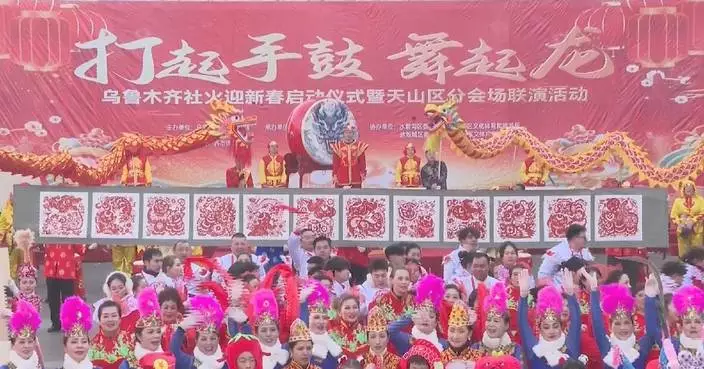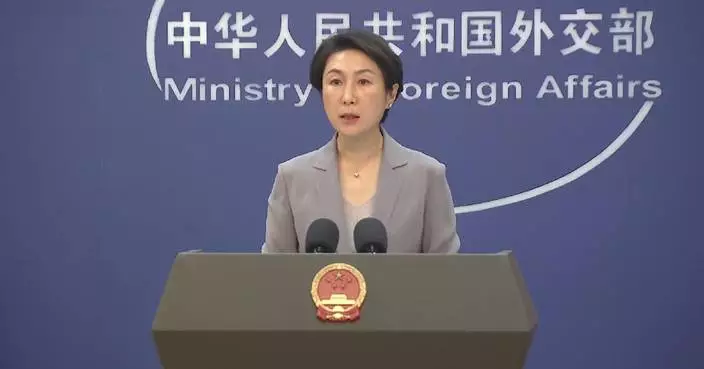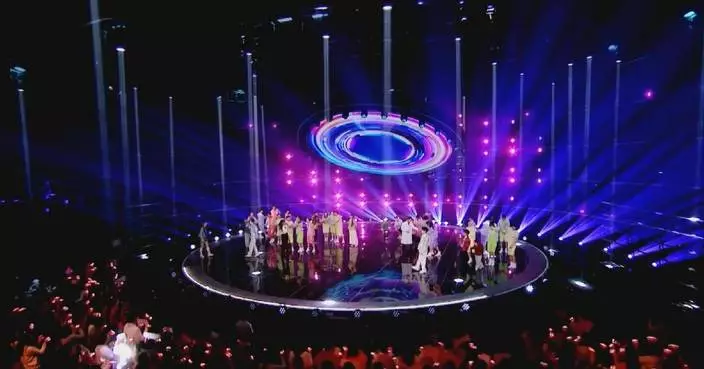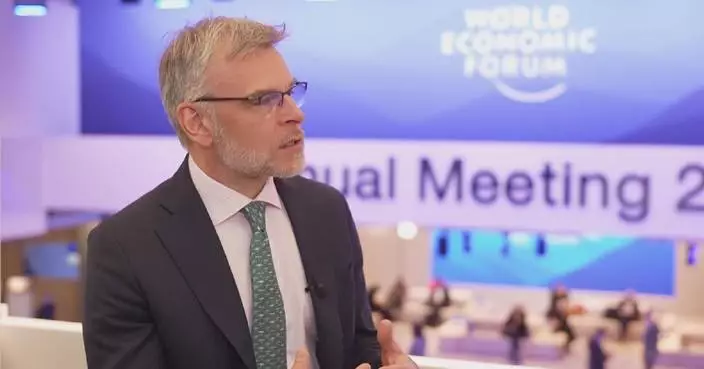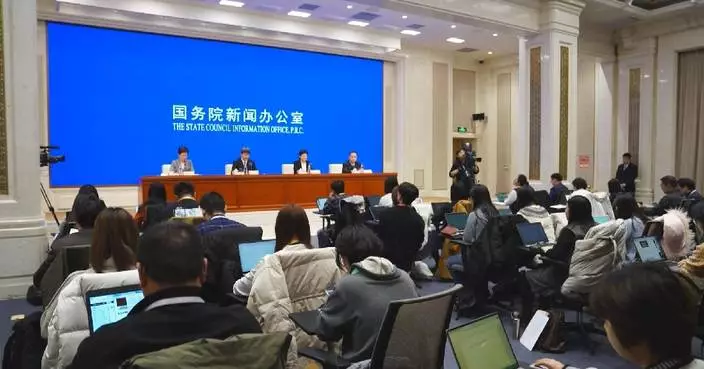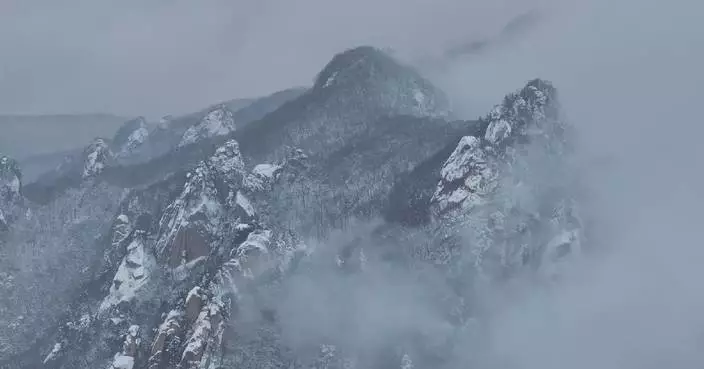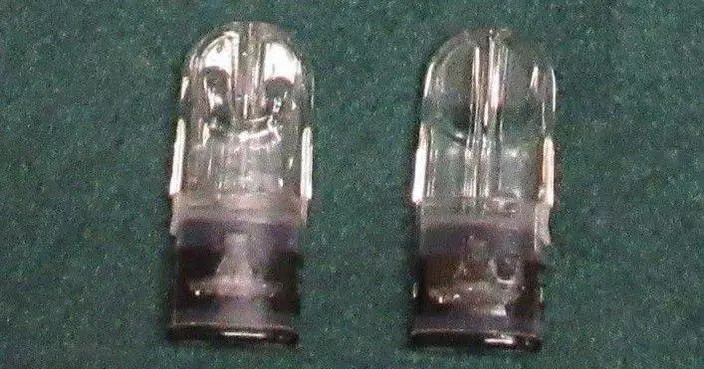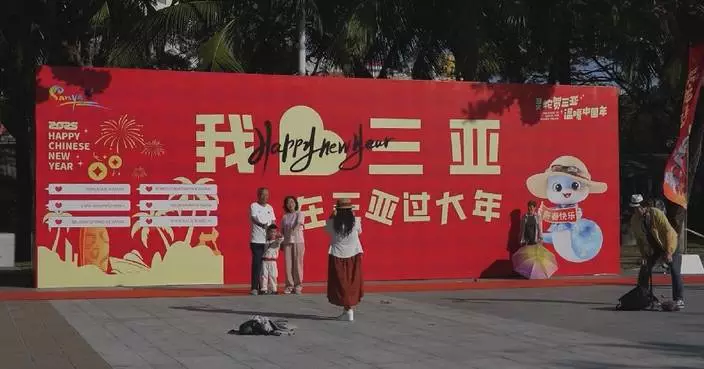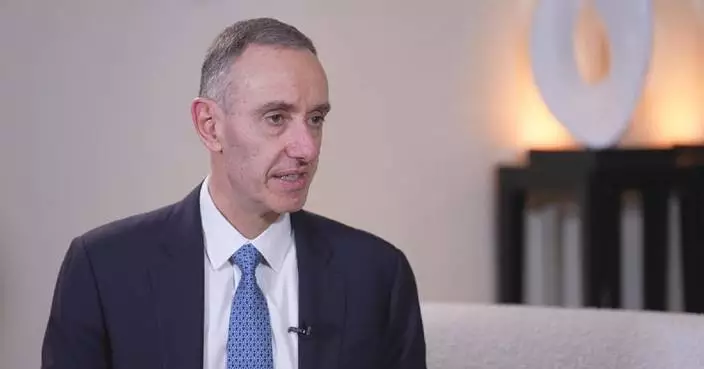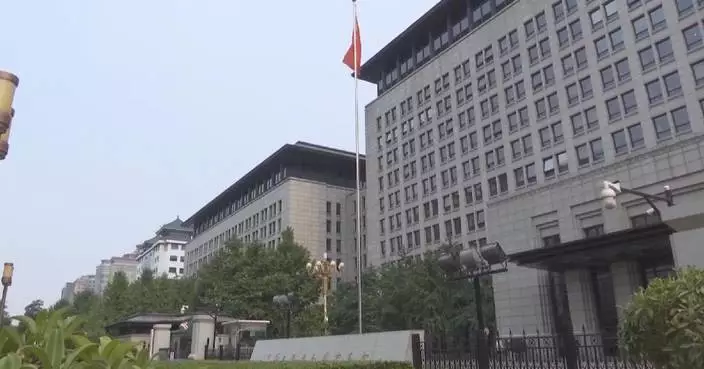PARIS (AP) — Concerns about the water quality in the Seine River led officials to call off the swimming portion of an Olympic triathlon training session for a second straight day Monday.
Organizers overseeing the event at the Paris Games are optimistic that triathletes will be able to swim in the city’s famed waterway when the competition starts Tuesday.
The sport's governing body, World Triathlon, its medical team and city officials are banking on sunny weather and higher temperatures to bring levels of E. coli and other bacteria below the necessary limits to stage the swim portion of the race, which also includes biking and running.
World Triathlon made the decision to cancel the swim workout early Monday following a meeting over water quality in the Seine, which is closely linked to the weather. Rain deluged Friday’s opening ceremony and showers persisted Saturday, forcing some tennis matches and the skateboarding competition to be postponed.
The representatives for Paris 2024 and triathlon’s international federation said tests conducted in the Seine on Sunday showed water quality levels leading into the training session that “did not provide sufficient guarantees to allow the event to be held.” The delegation blamed the recent rain.
French sports minister Amélie Oudéa-Castéra told French news channel CNEWS on Monday that officials are “absolutely serene about all of this.” The plans they put in place to control bacteria levels in the river have been effective, but the weather is beyond their control, she said.
The recent rain contributed to the water quality concerns, but she said she believed things would improve.
“I am confident in the fact that we will be able to be there tomorrow for the men’s triathlon event," she said.
Organizers say the backup plan is to postpone the events and, if elevated bacteria levels persist, the swimming portion of the race will be abandoned and the athletes will compete in a duathlon.
Swimming in the Seine has been banned for over a century in big part because of the poor water quality. Organizers have invested 1.4 billion euros ($1.5 billion) to prepare the river ahead of the Olympics.
In addition to the swimming part of the men's triathlon Tuesday, the women's triathlon Wednesday and the triathlon mixed relay Monday, the Seine is expected be used for the marathon swimming competitions on Aug. 8 and 9.
Daily water quality tests in early June indicated unsafe levels of E. coli bacteria, followed by recent improvements. Some of the measures put in place to improve the water quality include the construction of a giant basin to capture excess rainwater and keep wastewater from flowing into the river, renovating sewer infrastructure and upgrading wastewater treatment plants.
High levels of E. coli in water can indicate contamination from sewage. Most strains are harmless and some live in the intestines of healthy people and animals. But others can be dangerous. Even a mouthful of contaminated water can lead to diarrhea, and the germ can cause illnesses such as infections in the urinary tract or in the intestines.
Paris Mayor Anne Hidalgo took a very public swim in the river about two weeks before Olympic events were set to start, hoping to ease fears about the long-polluted waterway being clean enough to host swimming competitions.
AP Health Writer Devna Bose contributed from Jackson, Mississippi.
AP Olympics: https://apnews.com/hub/2024-paris-olympic-games
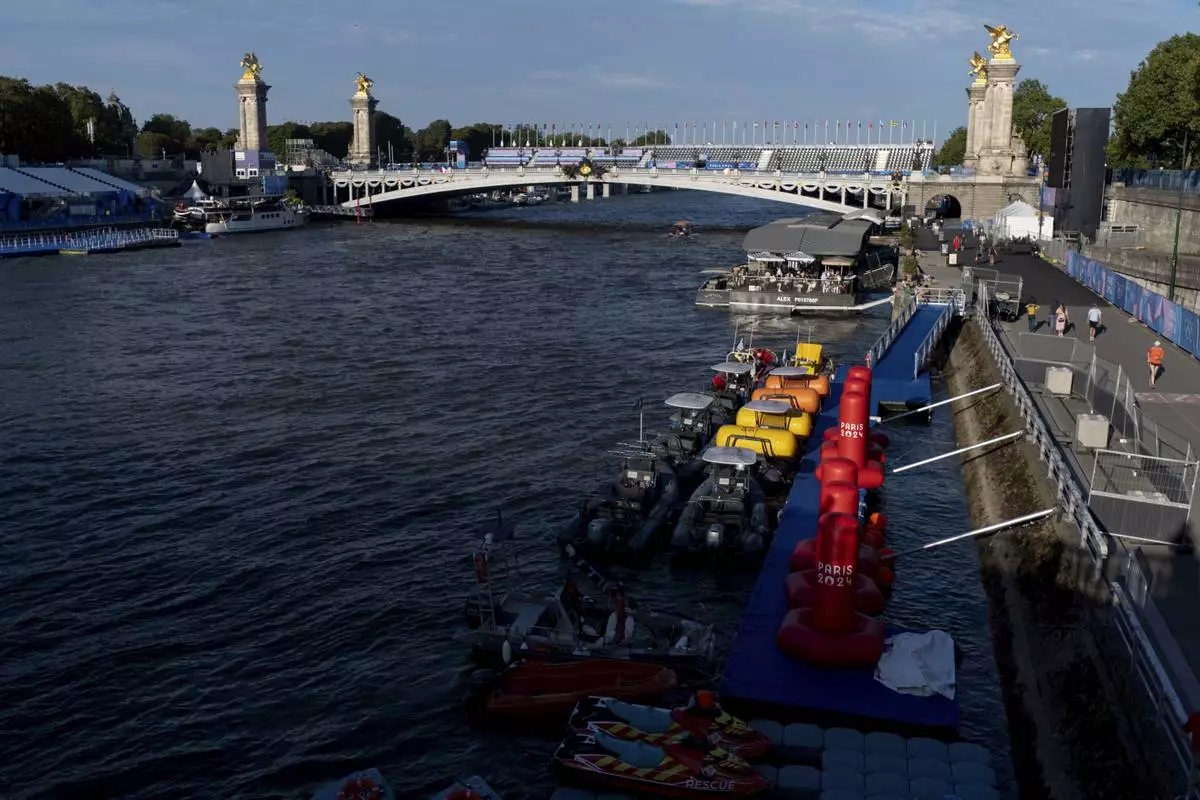
Watercraft and buoys sit along the Seine river as the triathlon event venue on the Pont Alexandre III bridge stands in the background at the 2024 Summer Olympics, Sunday, July 28, 2024, in Paris. (AP Photo/David Goldman)
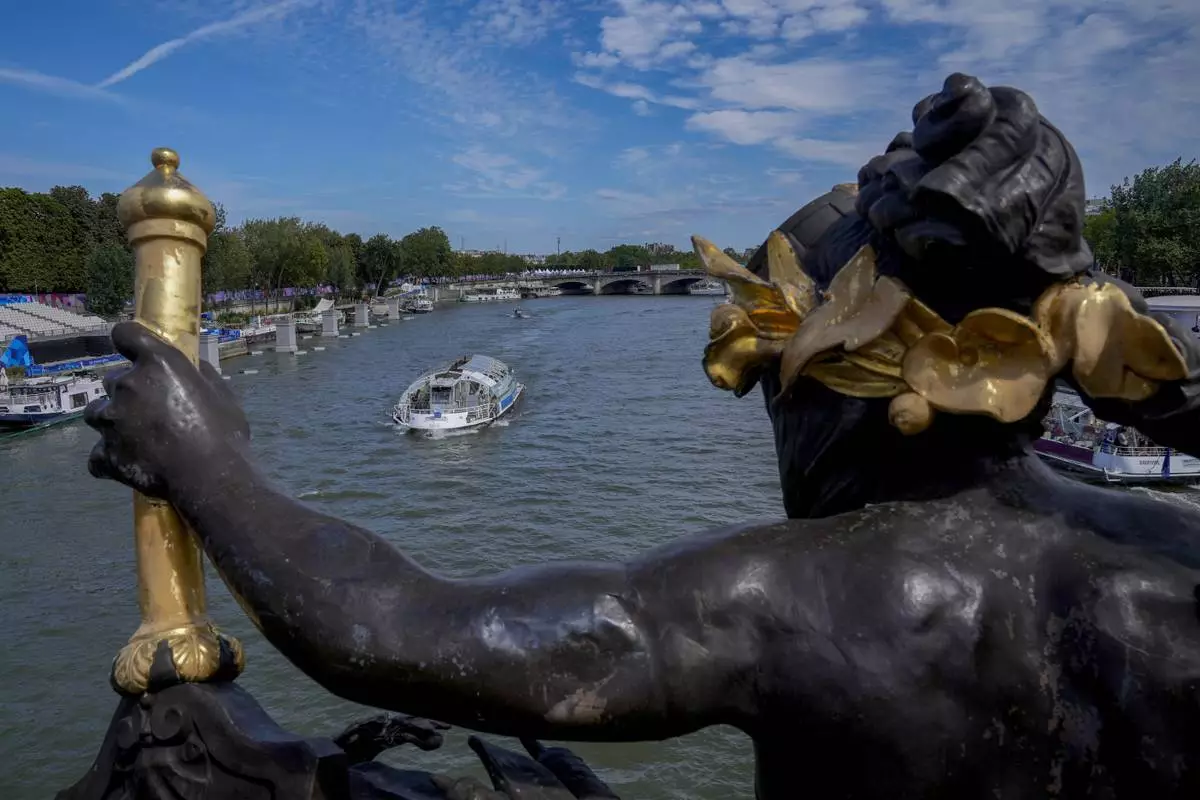
A tourist boat makes its way along the Seine River by the Alexandre III bridge, at the 2024 Summer Olympics, Sunday, July 28, 2024, in Paris, France. (AP Photo/Yasin Dar)
What's in a name change, after all?
The water bordered by the Southern United States, Mexico and Cuba will be critical to shipping lanes and vacationers whether it’s called the Gulf of Mexico, as it has been for four centuries, or the Gulf of America, as President Donald Trump ordered this week. North America’s highest mountain peak will still loom above Alaska whether it’s called Mt. Denali, as ordered by former President Barack Obama in 2015, or changed back to Mt. McKinley as Trump also decreed.
But Trump's territorial assertions, in line with his “America First” worldview, sparked a round of rethinking by mapmakers and teachers, snark on social media and sarcasm by at least one other world leader. And though Florida Gov. Ron DeSantis put the Trumpian “Gulf of America” on an official document and some other gulf-adjacent states were considering doing the same, it was not clear how many others would follow Trump's lead.
Mexican President Claudia Sheinbaum joked that if Trump went ahead with the renaming, her country would rename North America “Mexican America.” On Tuesday, she toned it down: “For us and for the entire world it will continue to be called the Gulf of Mexico.”
Map lines are inherently political. After all, they're representations of the places that are important to human beings — and those priorities can be delicate and contentious, even more so in a globalized world.
There’s no agreed-upon scheme to name boundaries and features across the Earth.
“Denali” is the mountain's preferred name for Alaska Natives, while “McKinley" is a tribute to President William McKinley, designated in the late 19th century by a gold prospector. China sees Taiwan as its own territory, and the countries surrounding what the United States calls the South China Sea have multiple names for the same body of water.
The Persian Gulf has been widely known by that name since the 16th century, although usage of “Gulf” and “Arabian Gulf” is dominant in many countries in the Middle East. The government of Iran — formerly Persia — threatened to sue Google in 2012 over the company’s decision not to label the body of water at all on its maps. Many Arab countries don’t recognize Israel and instead call it Palestine. And in many official releases, Israel calls the occupied West Bank by its biblical name, “Judea and Samaria.”
Americans and Mexicans diverge on what to call another key body of water, the river that forms the border between Texas and the Mexican states of Chihuahua, Coahuila, Nuevo Leon and Tamaulipas. Americans call it the Rio Grande; Mexicans call it the Rio Bravo.
Trump's executive order — titled “Restoring Names That Honor American Greatness” — concludes thusly: “It is in the national interest to promote the extraordinary heritage of our Nation and ensure future generations of American citizens celebrate the legacy of our American heroes. The naming of our national treasures, including breathtaking natural wonders and historic works of art, should honor the contributions of visionary and patriotic Americans in our Nation’s rich past.”
But what to call the gulf with the 3,700-mile coastline?
“It is, I suppose, an internationally recognized sea, but (to be honest), a situation like this has never come up before so I need to confirm the appropriate convention,” said Peter Bellerby, who said he was talking over the issue with the cartographers at his London company, Bellerby & Co. Globemakers. “If, for instance, he wanted to change the Atlantic Ocean to the American Ocean, we would probably just ignore it."
As of Wednesday night, map applications for Google and Apple still called the mountain and the gulf by their old names. Spokespersons for those platforms did not immediately respond to emailed questions.
A spokesperson for National Geographic, one of the most prominent map makers in the U.S., said this week that the company does not comment on individual cases and referred questions to a statement on its web site, which reads in part that it "strives to be apolitical, to consult multiple authoritative sources, and to make independent decisions based on extensive research.” National Geographic also has a policy of including explanatory notes for place names in dispute, citing as an example a body of water between Japan and the Korean peninsula, referred to as the Sea of Japan by the Japanese and the East Sea by Koreans.
In discussion on social media, one thread noted that the Sears Tower in Chicago was renamed the Willis Tower in 2009, though it's still commonly known by its original moniker. Pennsylvania's capital, Harrisburg, renamed its Market Street to Martin Luther King Boulevard and then switched back to Market Street several years later — with loud complaints both times. In 2017, New York's Tappan Zee Bridge was renamed for the late Gov. Mario Cuomo to great controversy. The new name appears on maps, but “no one calls it that,” noted another user.
“Are we going to start teaching this as the name of the body of water?” asked one Reddit poster on Tuesday.
“I guess you can tell students that SOME PEOPLE want to rename this body of water the Gulf of America, but everyone else in the world calls it the Gulf of Mexico,” came one answer. “Cover all your bases — they know the reality-based name, but also the wannabe name as well.”
Wrote another user: “I'll call it the Gulf of America when I'm forced to call the Tappan Zee the Mario Cuomo Bridge, which is to say never.”
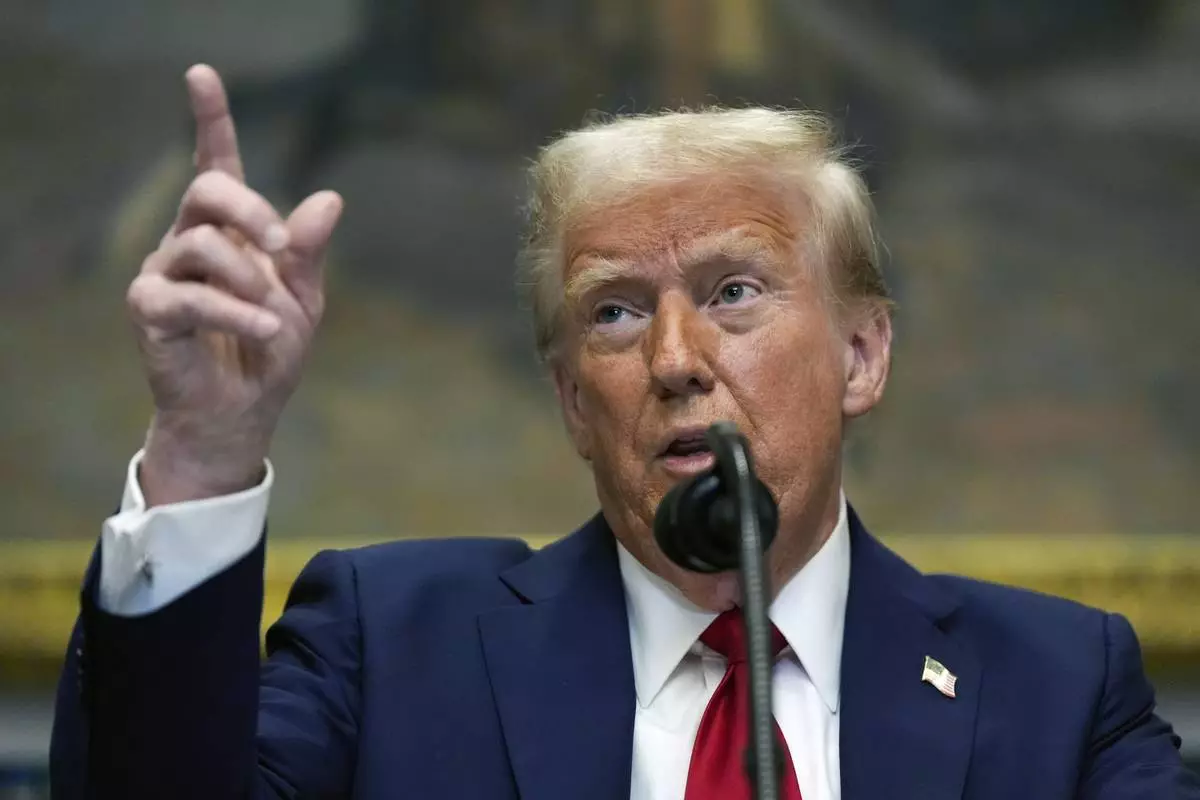
FILE - President Donald Trump speaks in the Roosevelt Room of the White House, Tuesday, Jan. 21, 2025, in Washington. (AP Photo/Julia Demaree Nikhinson, File)
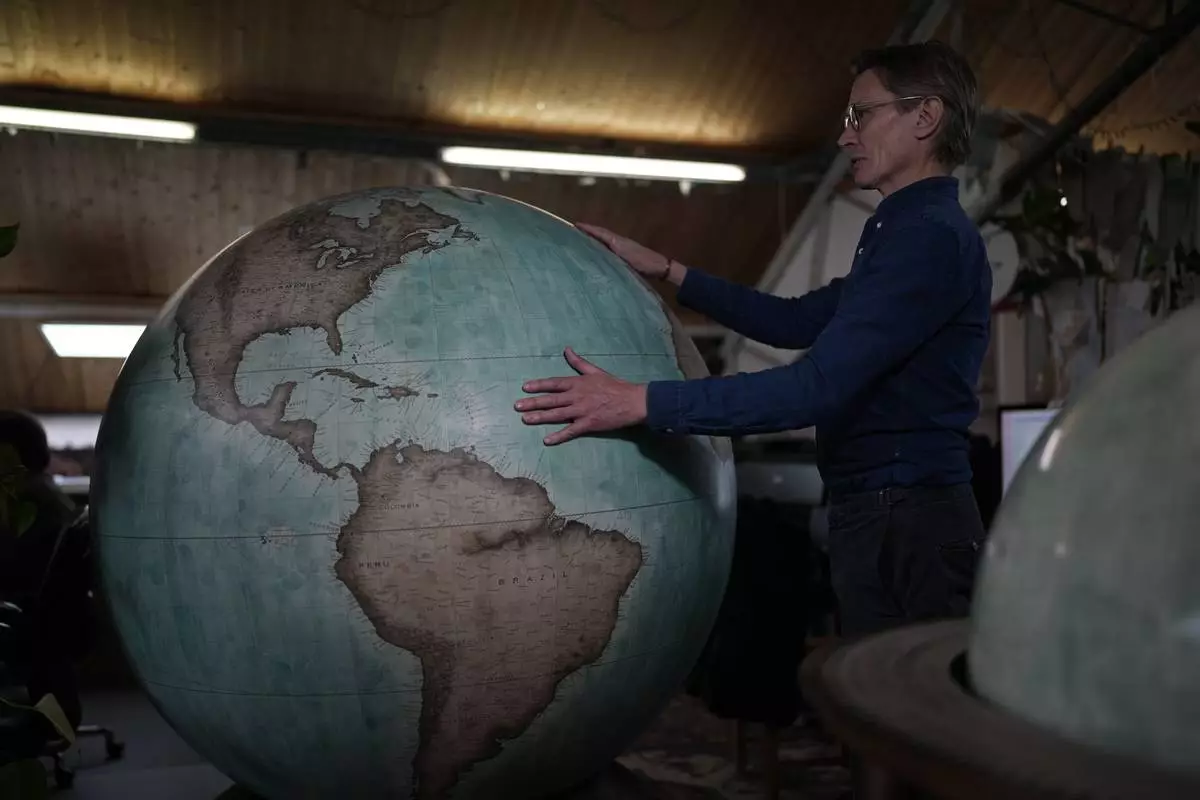
FILE - Peter Bellerby, the founder of Bellerby & Co. Globemakers, holds a globe at a studio in London, Tuesday, Feb. 27, 2024. (AP Photo/Kin Cheung, File)
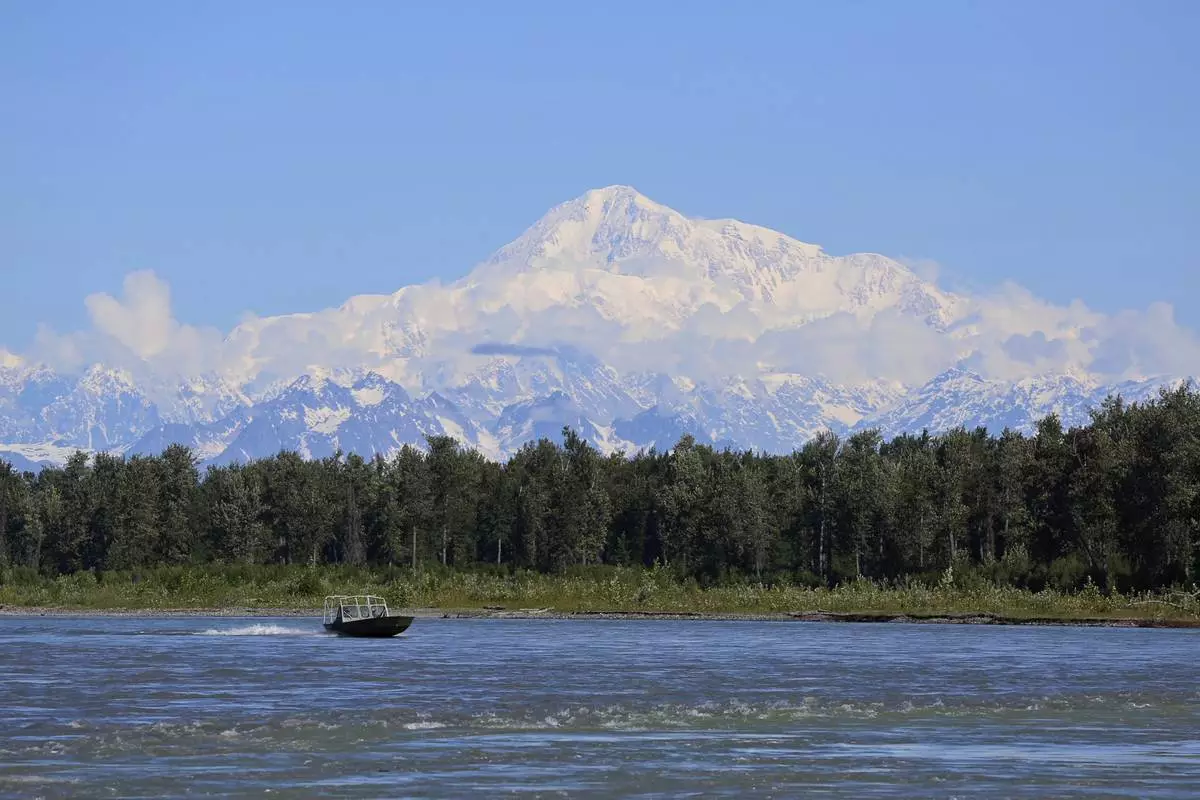
FILE - A boat is seen on the Susitna River near Talkeetna, Alaska, on Sunday, June 13, 2021, with Denali in the background. Denali, the tallest mountain on the North American continent, is located about 60 miles northwest of Talkeetna. (AP Photo/Mark Thiessen, File)
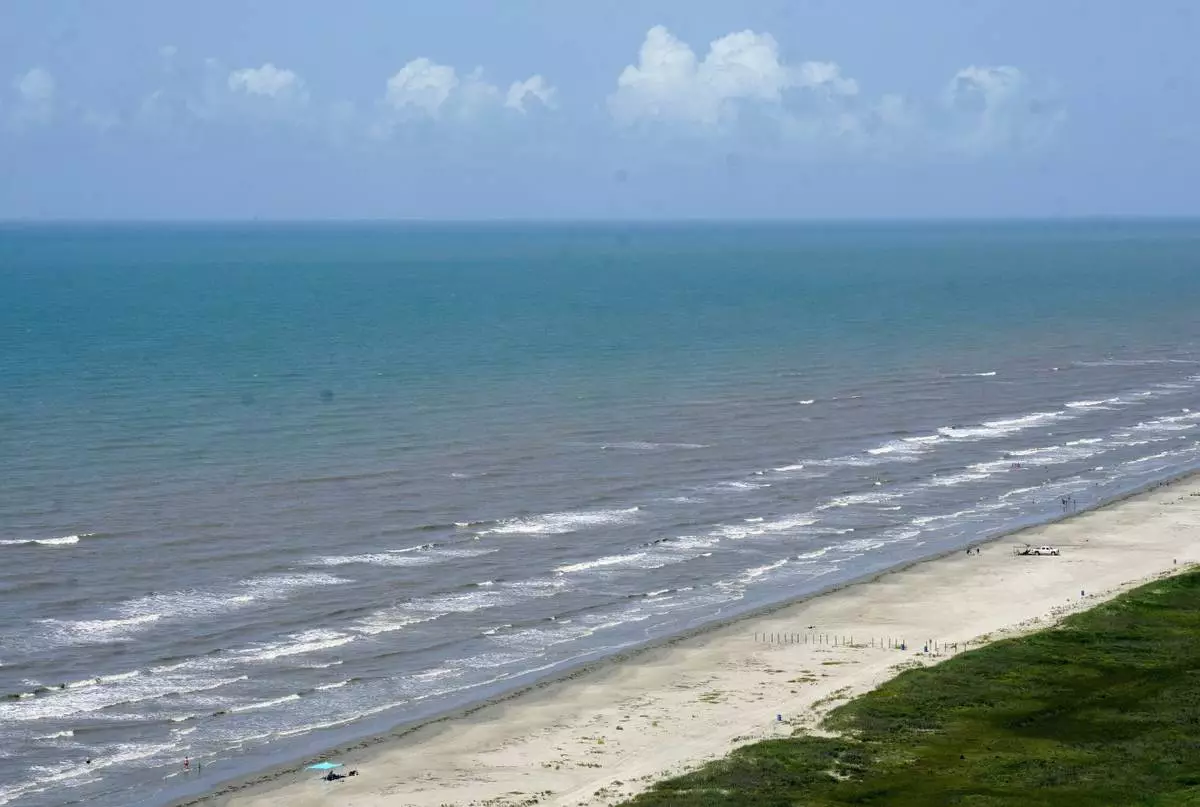
FILE - The water in the Gulf of Mexico appears bluer than usual off of East Beach, Saturday, June 24, 2023, in Galveston, Texas. (Jill Karnicki/Houston Chronicle via AP, File)




